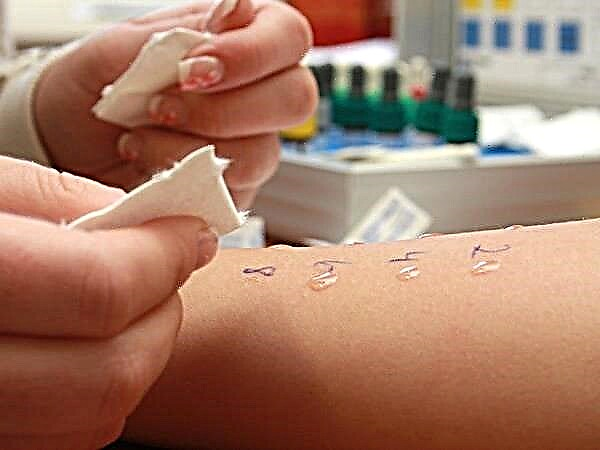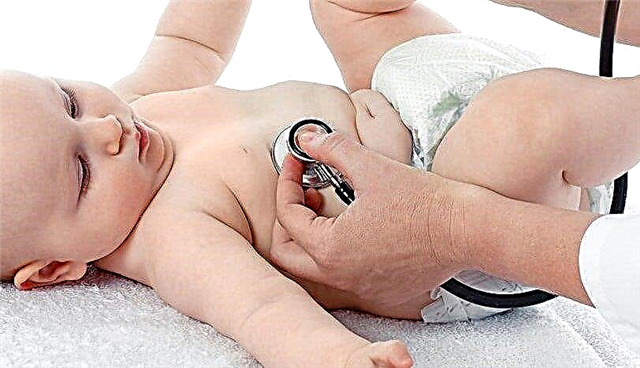When a baby's head sweats, a lot is not clear for young parents. For example, is it normal, is it necessary to do something about it. This article has answers to similar questions.

Happy baby
Features of thermoregulation of infants
Sweating is a natural process in an adult. To reduce the temperature, the body begins to release fluid. It evaporates and cools the skin, which helps to avoid overheating quickly.
In a newborn, all systems of the body still work differently from those of his parents. His entire body is only adapting to independent existence, including thermoregulation.
Before birth, the body was not responsible for warming or, on the contrary, cooling itself. For this he had a mother's womb. The fetus produces heat, but the placenta is responsible for correcting its level. After the birth of a full-term baby, the responsibilities of independently maintaining their temperature are assigned to his body. Since the thermoregulation system is just starting to work, the following may happen:
- A warmly dressed baby has cold hands and feet;
- His head is sweating.
Interesting. Babies born prematurely do not lie in ordinary cots, but in special ones - closed and heated cuves. This is done because their bodies are simply not able to maintain the required temperature level.

Premature baby in incubator
Causes of head sweating during sleep
One of the most common complaints from parents of newborns that pediatricians hear is hyperhidrosis during sleep. A wet spot even forms on the baby's pillow while the baby sleeps. There may be several reasons for this.
Physiological factors
If the baby's head sweats during sleep, then, perhaps, for the following reasons:
- Overheating. The optimal level of heat for a baby per month (lightly dressed, in one body with short sleeves) is 18-23 degrees of heat. By the year this figure drops to 17-21 degrees Celsius. But young parents are sometimes too afraid for their child and wrap him up in many clothes.
- Overwork. The state of overexcitation makes the whole body work more actively, despite the fact that the baby is tired. Having reached a critical point, the consciousness "falls" into sleep, but all the processes of the body do not slow down so immediately. Including metabolism, which causes sweating.
- Unsuitable bed. Once upon a time, the best pillow and blanket were considered downy - the warmest. But for kids it is definitely better not to choose them. Down creates a greenhouse effect - it does not "breathe". Accordingly, the baby overheats.
- The wrong clothes. No synthetics are needed on the baby's body.
External factors
The next category of reasons is external factors. That is, not only that which affects directly the child himself, but also the rest of the inhabitants. These include:
- Room temperature.
- Lack of fresh air supply. Children need it more than adults, since their cooling due to breathing is more active.
- Humidity too high.
Pathologies, infections and viruses
A separate topic that should be mentioned is hyperhidrosis in pathological conditions (that is, different from the norm). There are such reasons here:
- Heat. Here, the cooling mechanism is triggered, it saves the body from overheating. After the fever is knocked down, the baby also sweats, this is normal.

Baby with fever
- Poisoning. Metabolism is accelerated in order to quickly eliminate toxins. Consequently, the sweat glands also work more actively.
- Heart failure. As a rule, such sweat is sticky, cold.
- Disorders of the endocrine system. Exchange processes are too fast.
- Side effects from medications.
- The initial stage of rickets.
Important! If the child is not sick (that is, does not have fever, is not poisoned), but sweats a lot during sleep, be sure to visit a doctor. This symptom may indicate serious problems that are best treated as soon as possible.
Why does my head sweat when feeding
Often the back of the head in a baby sweats, not only in a dream, but also when feeding. The reasons for this phenomenon are slightly different:
- Sucking is an effort. This is the main difference between hyperhidrosis during sleep and while eating. In the first case, the baby is relaxed, in the second - he strains, works. When a person does hard physical work, he sweats, this is natural.
- Heat. The baby may be too warmly dressed, or the room is very hot.
- The beginning of rickets.
- Avitaminosis.
- General exhaustion of the body.

Mom breastfeeds the baby
Eliminating the problem
If the child is healthy, then usually everything depends on the fact that the baby has to work in too uncomfortable conditions. To facilitate his task, do the following:
- Don't dress him warmly. At a temperature of 20-22 degrees Celsius, one body is enough.
- Monitor the temperature in the room.
- The baby is placed comfortably. If he is in an uncomfortable position, he will have to strain to reach his chest.
The cause of hyperhidrosis may be the mother's breast. If her ducts are too narrow, for example, the baby will have to work harder to suck the milk out of them. In this case, if the baby is completely healthy, you do not need to do anything - just endure it until it outgrows. It's not a problem. On the contrary, it would be worse if breast milk flowed too freely - the baby would receive only front, sweet milk, overeat it. Then it would turn into stomach problems.
In a similar case, but not on natural, but on artificial feeding, the problem is solved by replacing the nipple of the bottle. It is best to consult your doctor before doing this.

Formula-fed baby
Prevention
To prevent hyperhidrosis from appearing during feeding, the mother needs to remember that her child works hard while eating. It is normal for a child to sweat.
If excessive sweating of the head is caused not by effort, but by pathology, it is imperative to visit a pediatrician. He will recommend physiotherapy, medicines, give advice on correcting the daily routine. Then, subject to the temperature regime, it will be possible to ensure that the baby wakes up dry.
How to deal with physiology
The main problems in terms of physiology are that it is too easy for a newborn to overheat, and also that the nervous process of arousal before a certain age prevails over inhibition. Because of what it is easy to overexcite him. You can solve the problem like this:
- Don't warm your baby too much. His body generates heat on its own. The task of clothes is to preserve it in the right amount. You don't need to wrap your child up too much.
- Use suitable materials. Pajamas, for example, are needed only from natural materials. Bed linen too. Cotton is most often used for these purposes. Fillers for pillows, blankets, mattress need modern, children's. They will allow air to pass through, get rid of excess heat. In addition, such bedding is lighter in weight.
- Maintain a healthy daily routine. The closer to sleep, the less impressions the baby should have. Moreover, he needs a calm environment.
What to do with external factors
A well-known pediatrician, Evgeny Komarovsky, recommends maintaining the following temperature in the nursery:
- 18-20 degrees - for sleep;
- 20-22 degrees - for wakefulness.

Evgeny Komarovsky
At the same time, the recommendation is designed for a child in one short-sleeved bodysuit covered with a blanket. You can put on a tight slip, but then you don't need to cover with anything.
It is also important to maintain optimal air humidity - 50-70%. To control this indicator, you can purchase a special device - a hygrometer.
If the weather is hot, the best thing mom can do is to go with the child to a cool shelter (but not directly under the air conditioner, this is dangerous). If this is not possible, the baby is undressed, the diaper is removed, and he is given a lot to drink.
When to see a doctor
If a child is outwardly healthy, not dressed too warmly, is in suitable conditions, has not gone too far, but still sweats often, this is a reason to see a doctor. The following symptoms should alert:
- Clammy, cold sweat;
- Hair is worn out on one side of the head or on the back of the head;
- Unpleasant smell of urine and feces;
- Poor appetite;
- Capriciousness;
- Hyperactivity;
- Unpleasant skin tone.
Any of these signs may indicate problems such as rickets, exhaustion of the body, heart failure, pathologies of the development of the nervous system, and others. It is up to the pediatrician to decide how to treat any of the above conditions.
If the baby has increased sweating, then the mother should not ignore this symptom. Perhaps the reason lies in the wrong parenting actions, or the crumbs have a serious problem that requires treatment.



